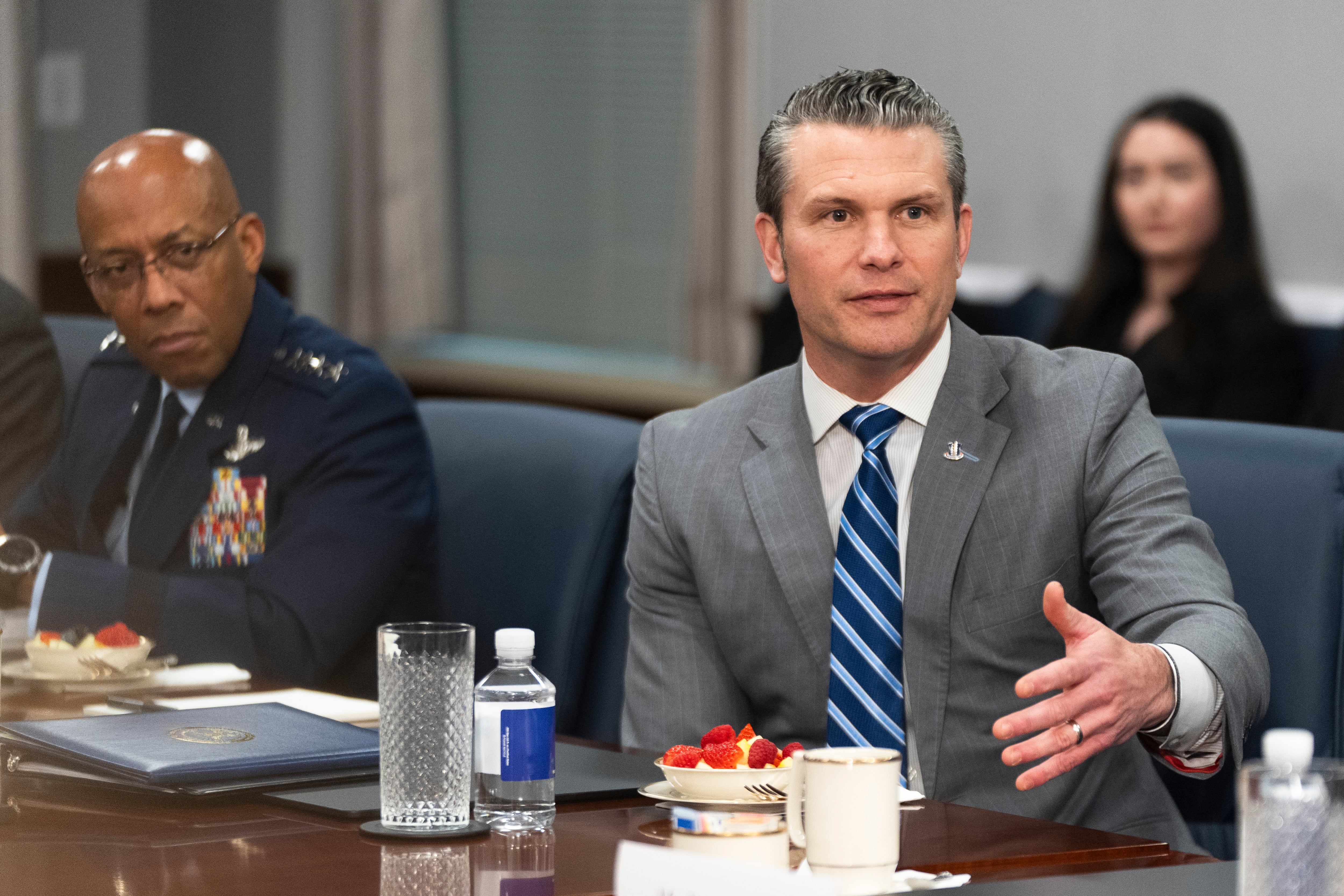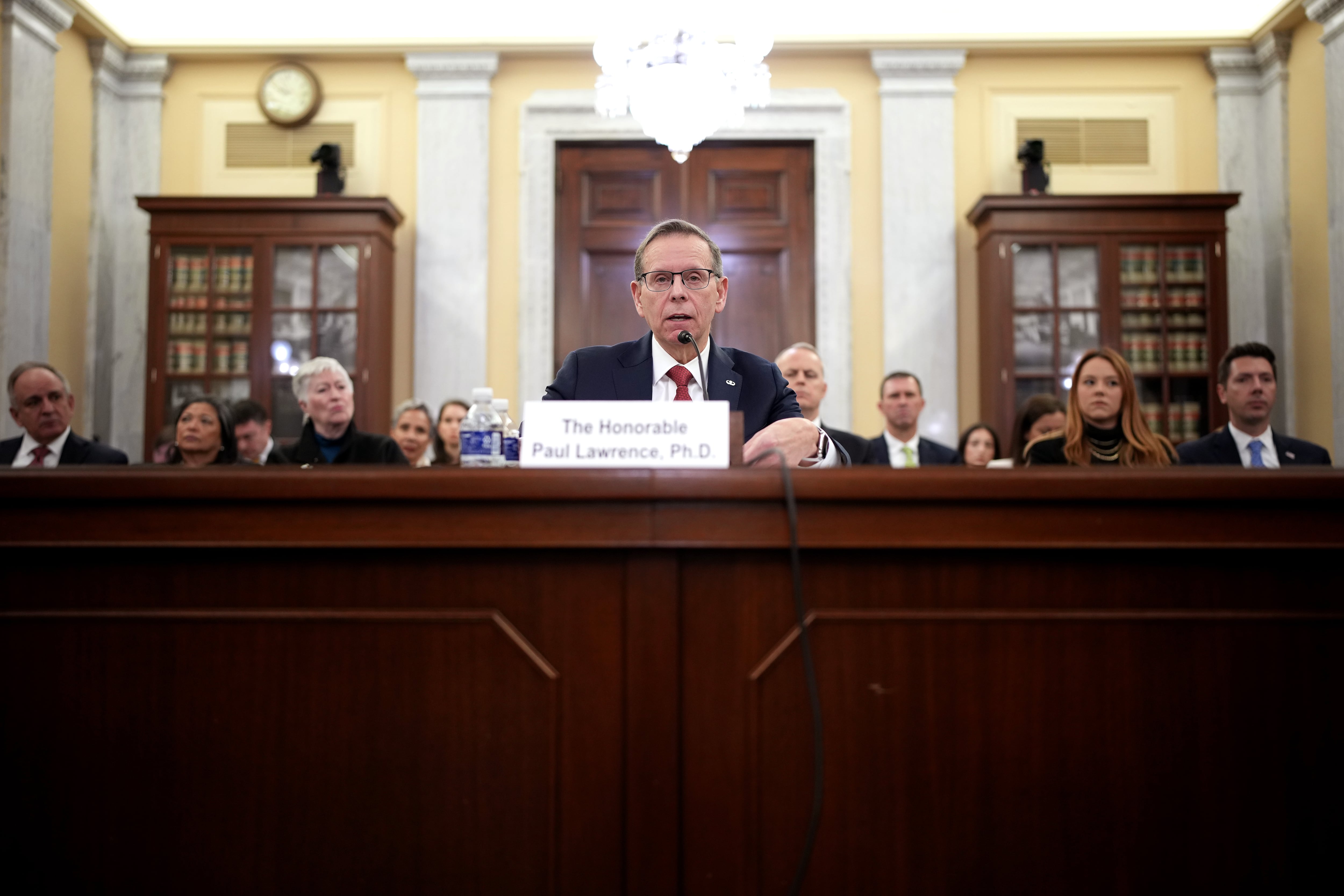Troops and family members could be jeopardizing national security with their use of the TikTok video-sharing app, a U.S. regulator told lawmakers.
While the military services have banned the use of TikTok from government devices, troops and family members do use the app on personal devices.
TikTok is owned by the Beijing-based ByteDance, said Brendan Carr, the senior Republican on the Federal Communications Commission. And he’s concerned about the amount of non-public sensitive data Americans upload that could be flowing into the hands of the Chinese government.
TikTok has grown in popularity in the military community. For example, troops often upload videos of barracks, military equipment and maneuvers, Carr said in testimony Wednesday before the House Oversight Committee’s panel on national security.
“With TikTok, this is a device right in your pocket. It’s going inside the military installation, looking at location data, which can give people information on troop movements,” Carr said. “There’s a range of ways that that sensitive data going back to Beijing with their sophisticated [artificial intelligence] can ultimately be used to harm U.S. national security.”
The hearing was held to explore financial fraud targeting service members and veterans. The threats to active duty and veterans come from a variety of sources, according to Carr, and many of the frauds seen on other online platforms are also perpetrated on TikTok. But there are unique national security concerns when it comes to this video-sharing app.
“TikTok has engaged in a pattern of misrepresentation regarding both the amount and extent of data it’s collected as well as how much has been accessed from inside China,” Carr said.
He cited a recent BuzzFeed News report of leaked audio from 80 internal TikTok meetings that showed China has repeatedly accessed Americans’ user data.
“The flow of this non-public sensitive data into China is particularly troubling given the [People’s Republic of China’s] track record of engaging in espionage and other nefarious acts,” Carr said.
“At its core, TikTok functions as a sophisticated surveillance tool that harvests extensive amounts of sensitive data from search and browsing history, keystroke patterns, location data, and biometrics including face prints and voice prints,” Carr added. “All of the concerns with TikTok are heightened in the military context.”
Rep. Glenn Grothman, R-Wisc., proposed that the military should be proactively urging troops to not use the app.
“Should the military be doing more to tell our members to stay off of TikTok?” he asked.
The federal government should be doing more, Carr said. The government “should address the continued use of TikTok on military installations, as well as any use that depicts U.S. military operations,” he added.
Ongoing national security reviews of TikTok, currently being conducted by officials in the Treasure and Commerce departments, should be finished soon, according to Carr.
Leaders of the Senate Select Committee on Intelligence, chairman Sen. Mark Warner, D-Va., and vice chairman Sen. Marco Rubio, R-Fl., called on the Federal Trade Commission in a July 5 letter to initiate an investigation of TikTok.
In light of reports about the Chinese government’s access to the data, they wrote, the FTC should immediately launch an investigation “on the basis of apparent deception by TikTok, and coordinate this work with any national security or counter-intelligence investigation that may be initiated by the U.S. Department of Justice.”
Carr has also called on Google and Apple to remove TikTok from their app stores. In a July 5 blog, a TikTok official addressed the company’s approach to keeping U.S. data secure.
“The security of the data our community entrusts us with is a top priority at TikTok, despite recent reports questioning that commitment,” wrote Michael Beckerman, TikTok’s head of public policy for the Americas.
TikTok recently stood up a new U.S. data security division “to bring heightened focus and governance to our ongoing efforts to strengthen our data protection policies and protocols, further protect our users, and build confidence in our systems and controls in the United States,” he stated.
The creation of that division was an important milestone in the goals they previously laid out, he said: “minimizing access to U.S. user data and minimizing data transfers across regions – including to China.”
Karen has covered military families, quality of life and consumer issues for Military Times for more than 30 years, and is co-author of a chapter on media coverage of military families in the book "A Battle Plan for Supporting Military Families." She previously worked for newspapers in Guam, Norfolk, Jacksonville, Fla., and Athens, Ga.





